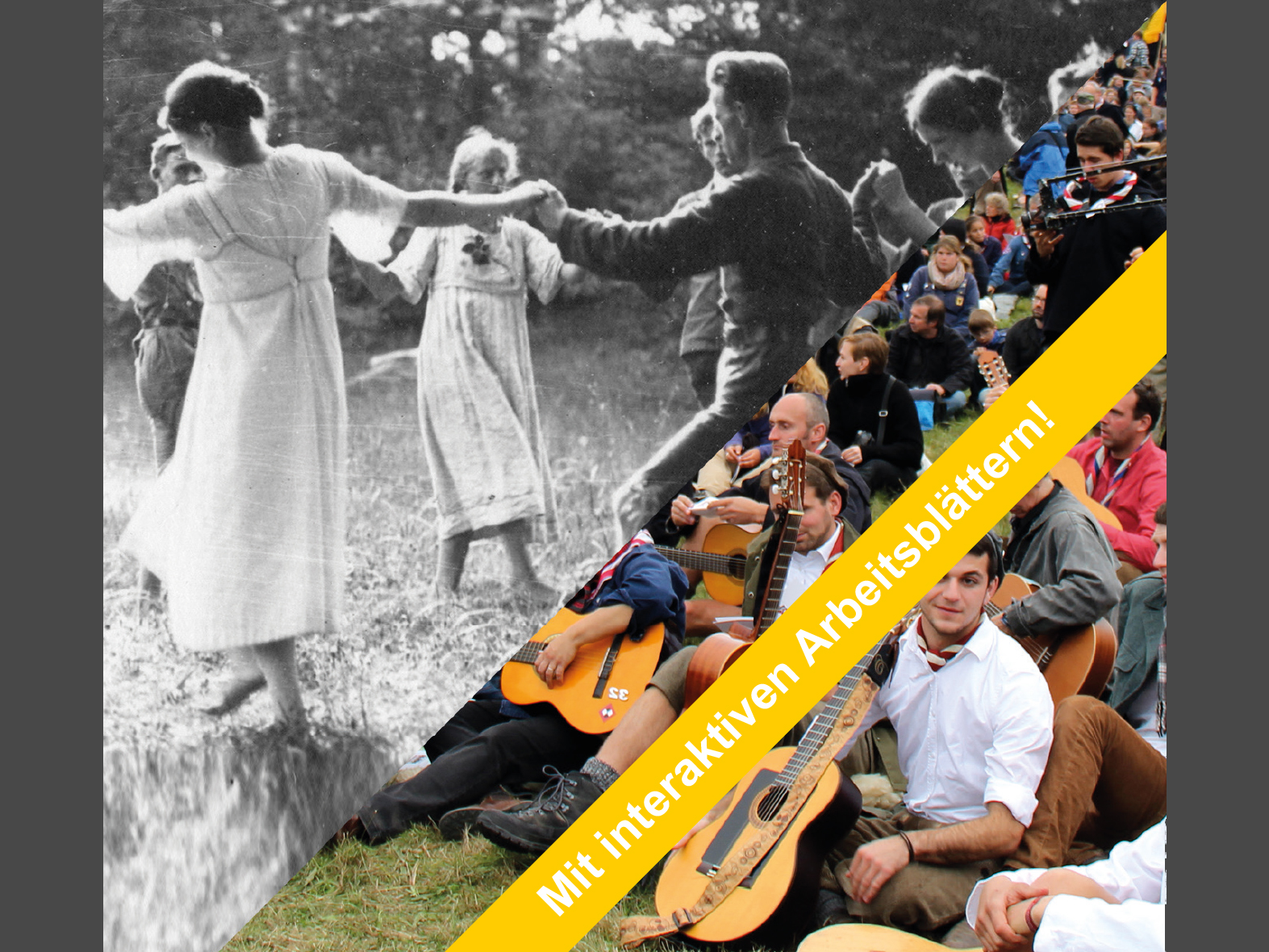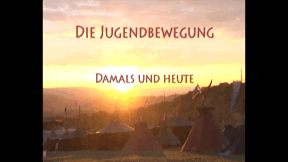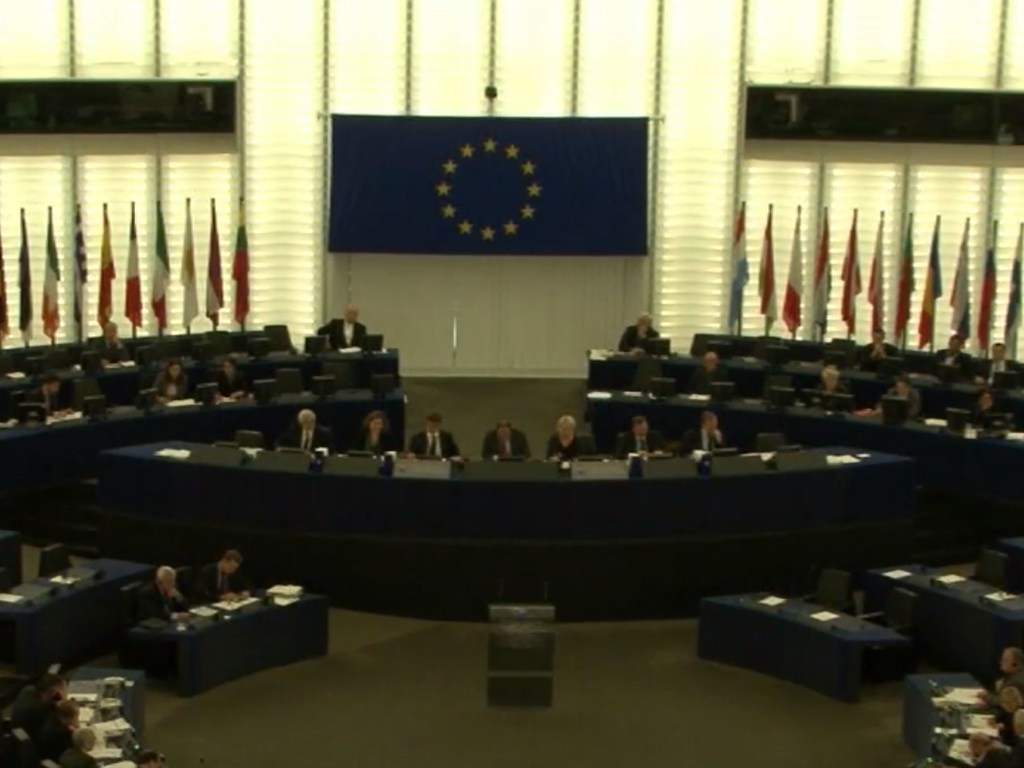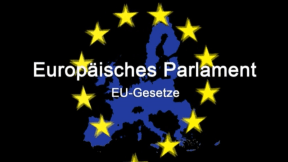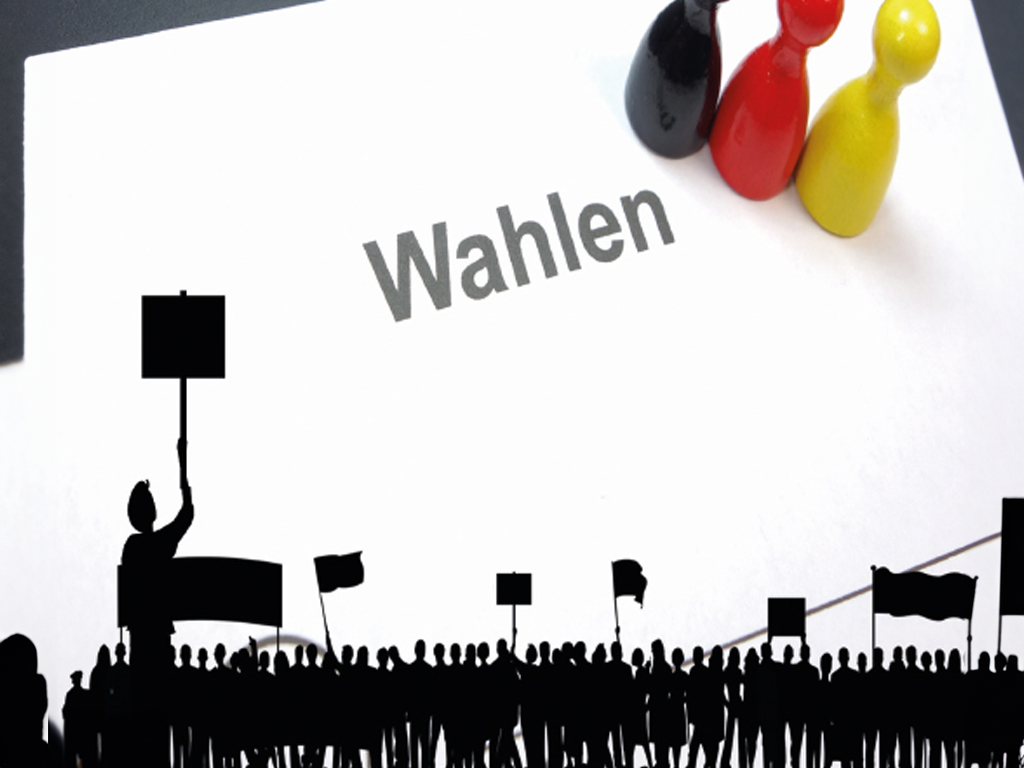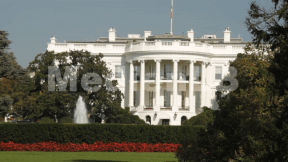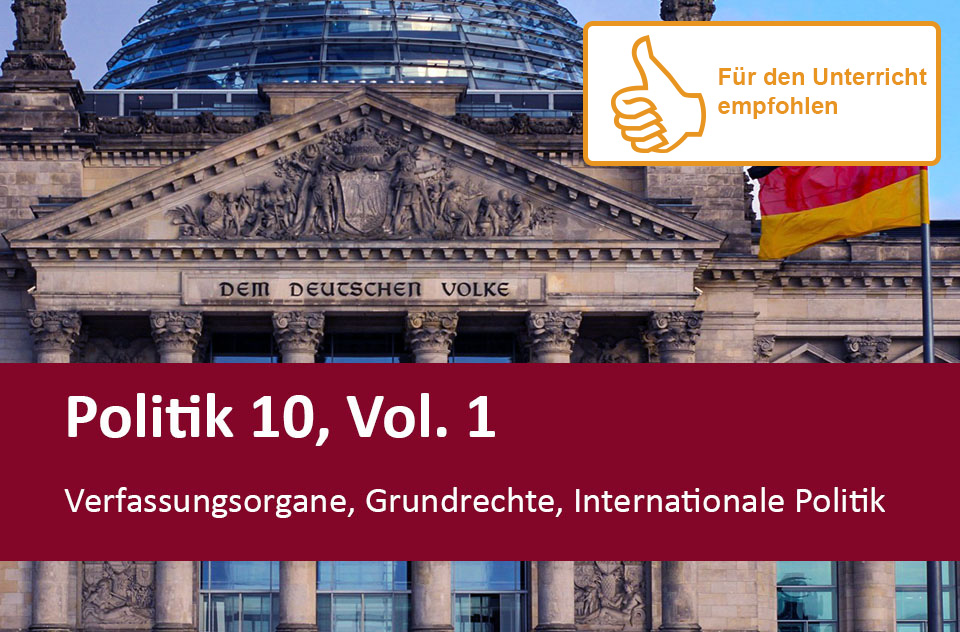

55500810
Verfassungsorgane, Grundrechte, Internationale Politik
Für den Unterrichtempfohlen
In unserem Arbeitsheft : Politik 10, Vol. 1 – Verfassungsorgane, Grundrechte, Internationale Politik finden Sie 50 interaktive und didaktisch aufbereitete Aufgaben.
In interaktiven Videoclips und interaktiven Aufgaben werden die Themen Verfassungsorgane, Meinungsfreiheit, Europäische Union, Wahlsystem der USA und deutsche Flüchtlingspolitik vermittelt, vertieft und geübt.
Das aktuelle Videomaterial, die Clips mit hochkarätigen Interviewpartnern, die durchgängige direkte Rückmeldung an die Lernenden betten das Erlernte in einen aktuellen Kontext ein und erhöhen dadurch Lernmotivation und -erfolg.
Lernen macht jetzt Spaß!

Included Tasks
- 1. Politisches System in Deutschland - Interaktives Video
- 2. Die Verfassungsorgane - Interaktive Aufgabe
- 3. Wahlgrundsätze - Videos und interaktive Aufgaben
- 4. Gewaltenteilung - Video und interaktive Aufgaben
- 5. Die Abgeordneten im Bundestag - Interaktives Video
- 6. Bundestag und Bundesrat - Lückentext
- 7. Bundestag und Bundesrat - Interaktive Aufgaben
- 8. Der Bundesrat - Video und Interaktive Aufgabe
- 9. Gesetze
- Regeln
- Normen - Lückentext
- 10. Normenhierarchie - Interaktive Aufgabe
- 11. Bundesgesetzarten - Interaktive Aufgabe
- 12. Gesetzgebungsverfahren - Bildzuordnung
- 13. Zustimmungs- und Einspruchsgesetze - Lückentext
- 14. Bundesverfassungsgericht - Interaktives Video
- 15. Bürgereinfluss auf die Politik - Video und Interaktive Aufgaben
- 16. Einflüsse auf die Politik - Video und interaktive Aufgaben
- 17. Aufgaben des Bundespräsidenten - Video und interaktive Aufgaben
- 18. Tätigkeiten des Bundespräsidenten - Interaktive Aufgabe
- 19. Vom Reichs- zum Bundespräsidenten - Video und Interaktive Aufgabe
- 20. Bundespräsidenten seit 1949 - Video und Interaktive Aufgabe
- 21. Bundesversammlung - Interaktives Video
- 22. Europäische Union - Interaktive Aufgaben (2)
- 23. Die Europäische Zentralbank - Interaktive Aufgabe
- 24. Zentralbanken und Politik - Aufgaben mit Video
- 25. EZB - Struktur in EU und Eurozone - Interaktive Aufgabe
- 26. EZB - Der Vertrag von Maastricht - Interaktive Aufgabe
- 27. Grundrecht Meinungsfreiheit - Video und Interaktive Aufgaben
- 28. Meinungsvielfalt - Video und Interaktive Aufgaben
- 30. Volksentscheid - Video und interaktive Aufgaben 30. Meinung oder Tatsache - Interaktive Aufgabe
- 31. Beeinflussung durch Soziale Medien - Interaktives Video
- 32. Satire - Video und Interaktive Aufgaben
- 33. Digitale Meinungsfreiheit - Lückentext
- 34. Pressefreiheit - Bildzuordnung
- 35. Populismus - Interaktive Aufgaben
- 36. Meinungsfreiheit in Gefahr - Interaktive Aufgabe
- 37. Aktive und Passive Meinungsfreiheit - Interaktive Aufgabe
- 38. Begrenzungen der Meinungsfreiheit - Interaktive Aufgabe
- 39. Meinungsfreiheit - Lückentext
- 40. Mehrheitswahlrecht - Interaktives Video
- 41. Senat und Abgeordnetenhaus - Interaktives Schaubild
- 42. Wahlmännersystem der USA - Video und Interaktive Aufgaben
- 43. Checks and Balances - Interaktives Video
- 44. Wer ist Flüchtling? - Interaktives Schaubild
- 45. Bildung als Grundlage der Integration - Interaktives Video
- 46. Pamodous Flucht - Interaktives Video
- 47. Vorurteile gegen Flüchtlinge - Interaktives Schaubild
- 48. Umgang mit Vorurteilen - Video und Lückentext
- 49. Ankunft in der Erstaufnahmeeinrichtung - Interaktives Video
- 50. Flüchtlingssituation weltweit - Interaktives Schaubild und Aufgaben
Curriculum-centred and oriented towards educational standards
Matching
Youth Movement
Dancing until your feet hurt: Here, at the meeting on the Hoher Meissner near Kassel, 3,500 participants from Boy Scout associations, youth and Wandervogel groups from all over the German-speaking region have gathered. They want to celebrate, simply get to know each other and commemorate a historic anniversary.
The European Parliament
The European Union is a union consisting of 27 European states. Currently its population comprises about 500 million inhabitants. 17 of these states have a common currency. Its aim is a pan-European area of freedom, security and justice. The European Parliament is elected every five years by the EU citizens and is thus the only directly elected body. The European Parliament shares its legislative function with the Council of the European Union, wherein the governments of the individual member states are represented, and the European Commission, which represents the interests of the EU as a whole. These three institutions together develop the political strategies and legislative provisions which are applied throughout the EU. The European Parliament ensures uniform pan-European regulations. Citizens profit from them for example for data protection, for mobile tariffs, for working and living in Europe and much more besides! Together with the extensive accompanying material the DVD is ideally suited for use in the classroom.




